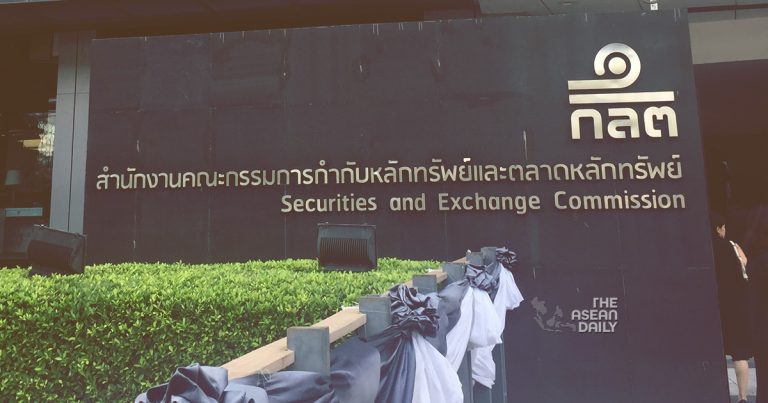22-6-2023 (BANGKOK) The Stock Exchange of Thailand (SET) is set to implement tighter listing rules as the exchange is hit by a major accounting scandal, debt defaults, and unexplained share gyrations that have rattled investors. The SET Index is on course for its lowest close in more than two years as a result. The SET board has approved a sweeping revamp of listing regulations, including increasing the ratio of free-float and setting a higher threshold for profitability and shareholders’ equity. The new rules will also apply to the Market for Alternative Investment (mai) for smaller companies.
Thai stocks are the worst performers in Asia this year, with foreign investors offloading a net 106 billion baht, the most among Asia’s emerging markets. Excessive volatility in some shares, including the country’s most-valuable company, and an accounting scandal that has led to a bond default at a listed electric cables maker are among the latest events to shake investor confidence in the 19-trillion-baht market.
The gyrations prompted warnings from analysts that the stock may be axed from some indices, triggering more volatility. Delta Electronics (Thailand) Plc attributed its share-price fluctuations to “market conditions and external factors beyond our control.” Investors have also been hit by a slump in Stark Corp that has seen its shares plummet to near-zero, slashing its value to about $11 million from this year’s peak of $1.2 billion.
The market turmoil prompted Finance Minister Arkhom Termpittayapaisith to urge the Securities and Exchange Commission to take steps to protect the interests of investors and rebuild confidence. The regulatory overhaul is part of SET’s three-year strategic plan to widen the scope for fund-raising for companies and address the current pain points, said SET President Pakorn Peetathawatchai.
The exchange aims to curb stock volatility and the future collapse of companies by raising the free-float criteria and paid-up capital norms. The measures, that could be implemented by the end of this year, will also boost liquidity in the secondary market and protect investors, the bourse said.
Among the highlights of other regulatory changes are same minimum paid-up capital requirement for companies listing on SET and MAI; raise requirements on free-float and the public offering allocation ratio of small-sized companies; deteriorating financial position or operating performance such as low operating income or continued losses, default on payment of debts or other instruments and auditor disclaimers and targets of backdoor listing may trigger warnings to investors; SET to delist companies that are unable to rectify all causes of delisting and resume trading within the specified period. SET will seek public feedback in the third quarter before implementing the new rules with SEC approval.




